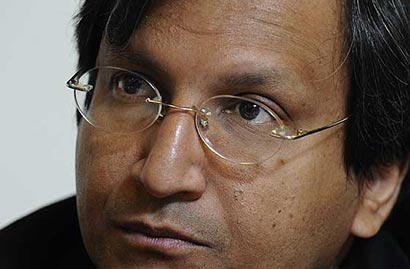Sri Lanka has ‘significantly’ benefited by engaging with UN Systems – Ravinatha Aryasinha

Sri Lanka told the 33rd session of the UN Human Rights Council (UNHRC) on Thursday, that constructive engagement with the Special Procedures and the UN system as a whole has benefitted Sri Lanka “significantly”, and it looks forward to continuing the engagement.
“We believe that engagement with the UN system and the Human Rights Mechanisms is in the best interest of the people of our country, to obtain advice and views, and also expertise and technical assistance that will benefit us in terms of capacity building and ensuring the strengthening of our own local institutions,” said Ravinatha Aryasinha, Sri Lanka’s Ambassador to the UN system in Geneva while speaking on the Report of the Working Group on Enforced and Involuntary Disappearances (WGEID) at the UNHRC on Thursday.
He further said that Sri Lanka hopes that it will receive the support required from the international community as a whole in capacity building and strengthening institutions, and also ensuring economic development which is essential for entrenching the reform agenda undertaken by the government.
WGEID had toured Sri Lanka from November 9 to 18, 2015, at the invitation of the Sri Lankan government. The three-member UN team was given free and unhindered access.
“We are pleased that the Working Group, in its Report, has “appreciated the openness and cooperative disposition of the officials. The Government considers its engagement with this Working Group as an important component of the reconciliation efforts in the country,” Aryasinha said.
“The Government has already taken concrete legislative and policy measures to translate its promises to the people of Sri Lanka, into action even amidst the many challenges being posed by certain extreme elements who attempt to pose obstacles to the Government’s sincere efforts at ensuring that the rights of all persons are promoted and protected and recurrence of violations that happened in the past are prevented,” Aryasinha told the council.
Sri Lanka ratified the International Convention for the Protection of All Persons from Enforced Disappearance on May 25, 2016. The process of drafting enabling legislation to incorporate the provisions of the Convention into Sri Lanka’s domestic law through an Act of Parliament, is underway. This should be presented to the Cabinet and thereafter to Parliament shortly.
On August 11, 2016, parliament passed, without a vote, legislation to establish an independent ‘Office on Missing Persons’ (OMP).Following its certification by the Speaker on 23 August 2016, the legislation has now been gazetted as the Act. No. 14 of 2016.
Currently, steps are being taken to allocate funds for the Office on Missing Persons in the Budget for 2017 which is to be presented to Parliament in November this year.
“We are pleased to say that the Office on Missing Persons has been endowed with the recommendations made by the Working Group in paragraph 79 of its Report and the Office also has the provision to enter into agreements with organizations including international organizations in the pursuit of its work,” Aryasinha pointed out.
(Source: The New Indian Express)

Latest Headlines in Sri Lanka
- Rap singer Shan Putha arrested for possessing firearm March 14, 2025
- Batalanda commission report tabled in Sri Lankan Parliament March 14, 2025
- Female Grama Niladharis withdraw from night duty over security concerns March 14, 2025
- Sri Lanka ranked as the best country for settling down March 14, 2025
- UN pledges support for Sri Lanka’s industrial and SME development March 13, 2025



Ravinath only role so far has been his conribution to the UNHRC which has been dragging on for almost a decade and yet remain unresolved in spite of the processions of experts of various shades and sizes reproting on the progess through their whistle stop tours. To date Ravinath has yet to make an assessment apart from playing lip service to our handlers from the masters who back him and bend backwards to his bosses at his base in Europe.
What is the significant contribution that Ravinath speak of for I dont see beyond the food program something that SL could hve done without. If only the government actively supported local agricaulture. something that they governments nvere did. Agricultire never wen beyond subsistence and with increasing costs peasants have abandoned agriculture and according some reports about 30 percent of arabale land has been allowed go into fallolow. Experts the likes of Ravinath continue to brag about self sufficiency which is myth for they dont take into account of the increasing import of wheat the consumption of which has doubled over the last decade and then the import of rice. These are issues that the UNDP should focus on if the really mean what they say about poverty alleviation something they consider to have some expertise on or at least on paper.
UNDP program is expanding aat a fantastic rate and their offices occupy a major portion of Baudhaloka Mawatha smothering the resdencies of the army navy and airforces command